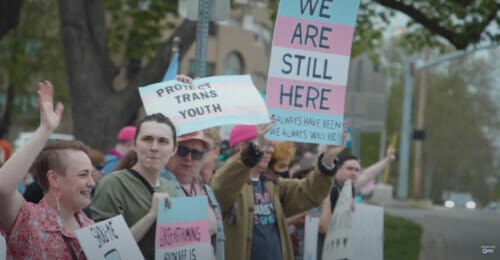Drag Queens Persevere in Face of anti-LGBTQ+ Legislation in Kansas and Missouri Drag Culture War
Published July 18th, 2023 at 6:00 AM
Above image credit: Drag Queen “Manic High” applying makeup. (Yasmine Ferhat | Flatland)On Feb. 2, 2023, legislation was introduced in the Kansas Senate. Senate Bill 149 sought to restrict drag performance in the vicinity of minors.
Allies believe the Kansas bill, along with hundreds of others cropping up around the country, are part of the larger push for anti-LGBTQ+ legislation. They say the legislative push was prompted by the Obergefell v. Hodges case, in which the U.S. Supreme Court ruled that the fundamental right to marry is guaranteed to same-sex couples.
“I think immediately after 2015 in state legislatures across the country, we started to see bathroom bans and all of these attacks around trans folks and their bodies,” said D.C. Hiegert, an attorney and LGBTQ+ legal fellow at the ACLU of Kansas. “There’s a lot of fear that is motivating these attacks on trans folks coupled with the fact that it’s a winning strategy in certain political sectors at the moment.”
Hiegert points out that a lot of the language surrounding anti-drag bills are worded very deliberately, and made to attack and strip the rights of transgender people.
“It was the same kind of rhetoric we saw with all the anti-trans bills,” Hiegert said. “Trying to demonize or vilify trans folks, or, queer folks that do performance are ‘groomers’ or things of that nature.”
There were 14 anti-LGBTQ+ bills introduced in Kansas by the end of last session, and 38 in the state of Missouri. Six of those were about limiting or criminalizing drag performance.
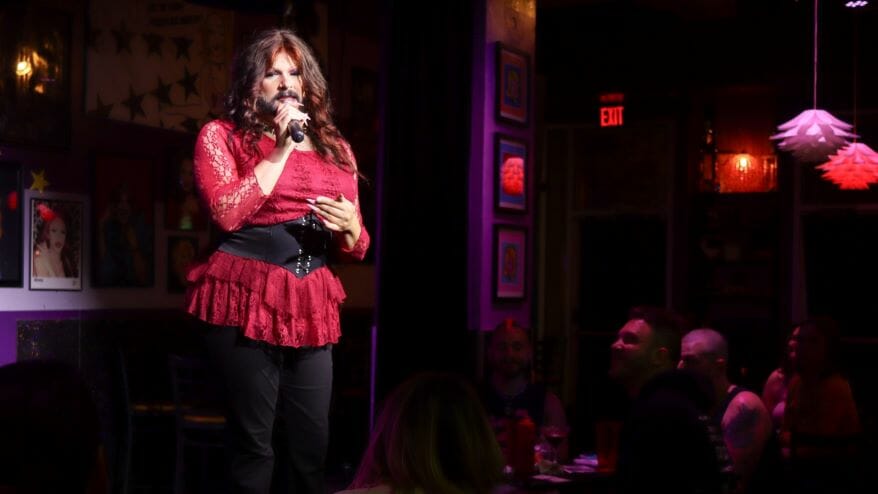
Despite the very vocal opposition towards the drag scene and anything LGBTQ+, drag queens in the area have not been discouraged in showcasing their art form during the most recent Pride Month.
“I love performing and I think it’s really fun to step into a new persona,” said River Row, otherwise known as “Manic High.” “My drag is inspired by the early 2000s, anything Y2K, anything early Britney Spears, I just love that era.”
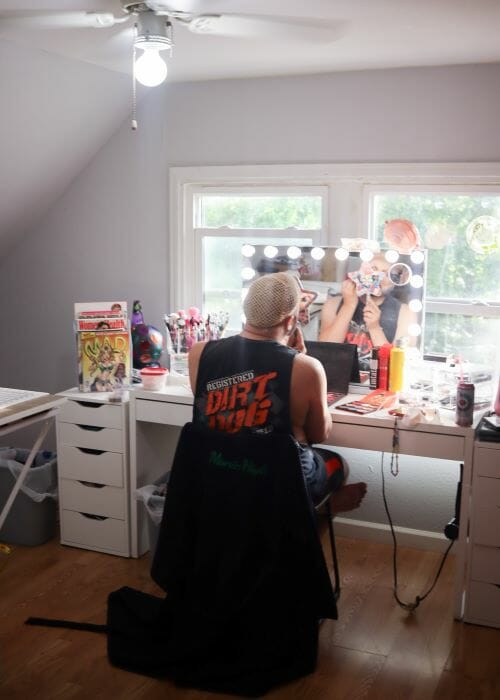
Row started doing drag in 2019, and hosts a monthly 2000s-themed show at Hamburger Mary’s in Kansas City.
“The amount of creativity and diversity in Kansas City is incredible,” Row said. “We have pageant queens, we have alternative performers, we have an incredibly dedicated Black community, and so it’s kind of just all over the place in the most possible, positive way.”
Row says the community is paying attention to the anti-drag legislation, but not dwelling on it.
“Drag is just something we love to do. We’re not targeting anyone. We’re not hurting people. We’re just creating art and entertainment for people,” Row said.
“We know that, yes, drag queens and drag entertainers are affected by this, but what does that mean for the transgender community?” they continued. “We’re putting on costumes and going out and performing, but for our transgender friends, this is their lives.”
The topic of children is often brought up in the discussion, and whether or not it’s appropriate for their viewing.
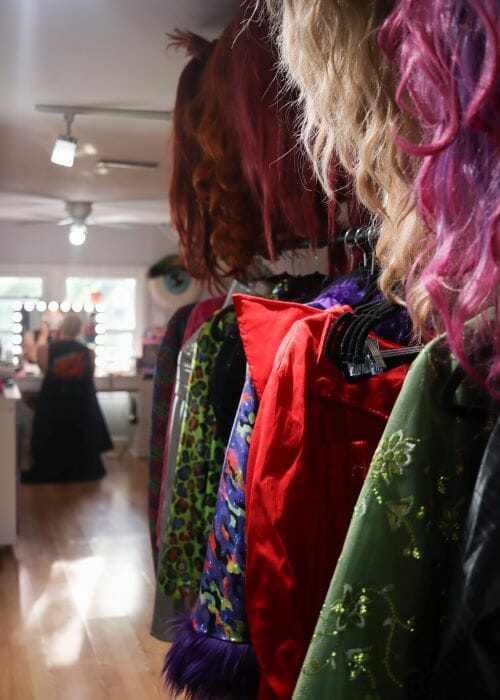
“If you don’t want your child to see a drag show, don’t take them to a drag show. If you don’t want them to see drag on TV, you should be monitoring what your child is watching on TV,” Row said. “It all comes back to the parents. You can’t legislate something that isn’t inherently wrong.”
Row says they just want to continue growing their character, Manic High, and expand on the types of drag shows they do including more intricate performances with acting, lines and original songs.
“Growing up, I always wanted to be a pop star, and then I found out in high school I was completely tone-deaf and can’t sing,” Row said. “This was my way of still living that fantasy, because when I’m on stage I really do feel like a pop star.”
Despite being a small college town, Lawrence also has a thriving and substantial drag scene.
“I have a friend who started doing drag, and it was something that I had been wanting to do for a while,” said Kieran Kalusniak, otherwise known as “Kiki Cobra.” “Seeing them perform in the community was definitely the catalyst for me to make that jump to actually perform in drag.”
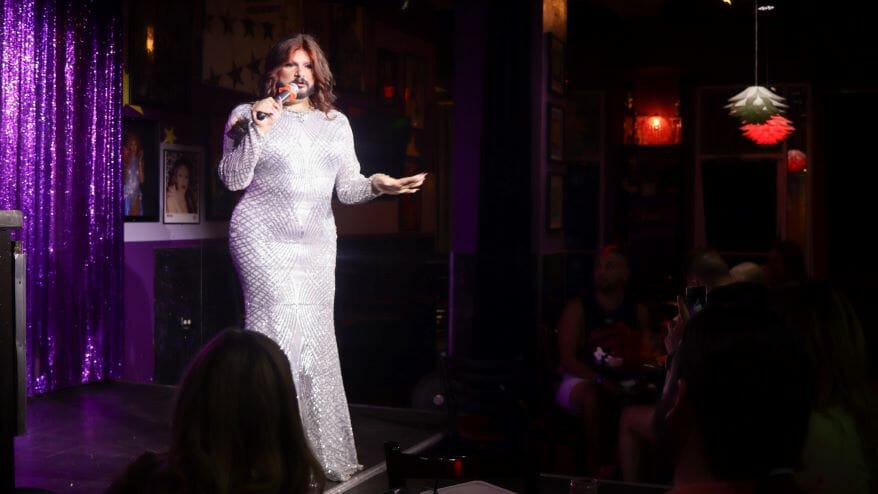
He describes the first time he did drag being nerve-racking, but an incredible experience.
Kiki Cobra performs primarily at The Jazzhaus on Massachusetts Street in Lawrence.
He describes the anti-drag legislation being a big topic of discussion in the Lawrence community, along with the fact that drag is different for every performer.
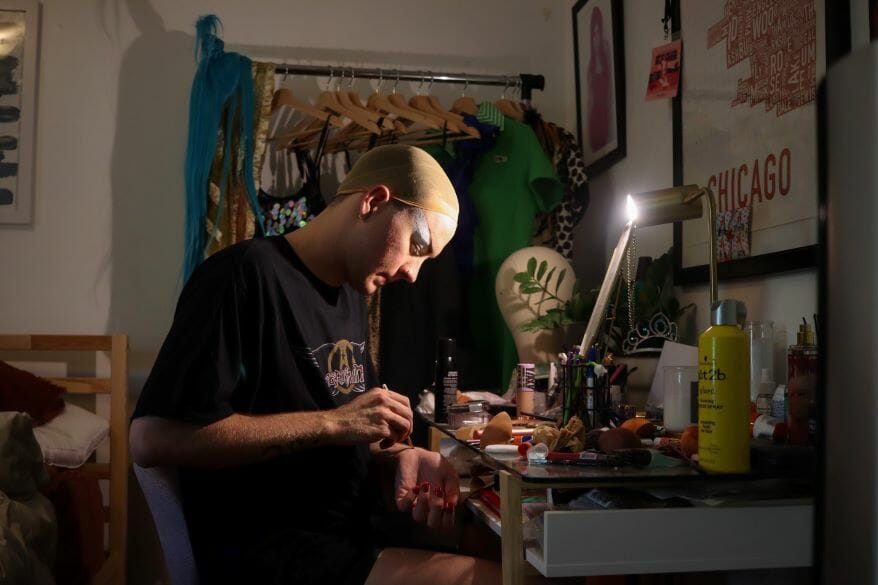
“Honestly, I think there are a lot of misconceptions about drag.” Kalusniak said. “For me, drag is an opportunity to play with the idea of gender roles and put it into a form of art where you’re able to perform and captivate a crowd.
“My goal is always to be putting a smile on people’s faces and really holding a stage,” he added. “And a big goal of mine is to never have an end goal.”
Both in Kansas City and Lawrence, the drag community has done a lot of work to protect this art form, along with the rights of fellow LGBTQ+ individuals.
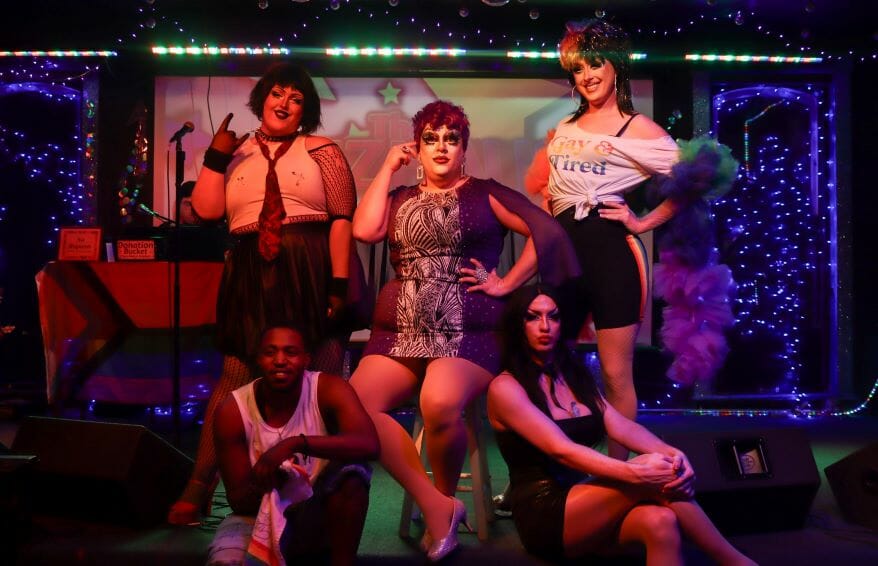
“Every pride that I’ve gone to in Kansas this summer has also had a large amount of tabling and information about the anti-trans bills that pass and ways that people can be protecting their rights,” Hiegert said. “I think there’s sort of this cloud that hangs over the celebratory nature of what pride is. Because folks don’t know … what’s coming in Kansas, how their lives are going to change.”
Hiegert says the best ways for folks in and out of the LGBTQ+ community to show their support is to understand what these bills are targeting, stay informed on what’s going on, and do community work like calling legislatures and participating in phone banks.
“Pride has always been a protest,” Hiegert said. “I think the community is still going out, celebrating, being together and finding joy, because they understand that there’s power in that.”
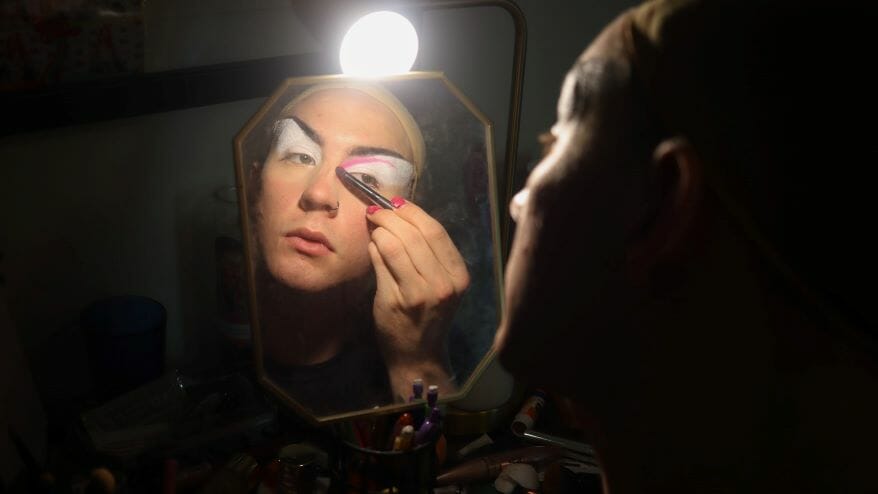
Yasmine Ferhat is a summer reporting intern with Kansas City PBS. She is studying journalism and film at the University of Kansas.



